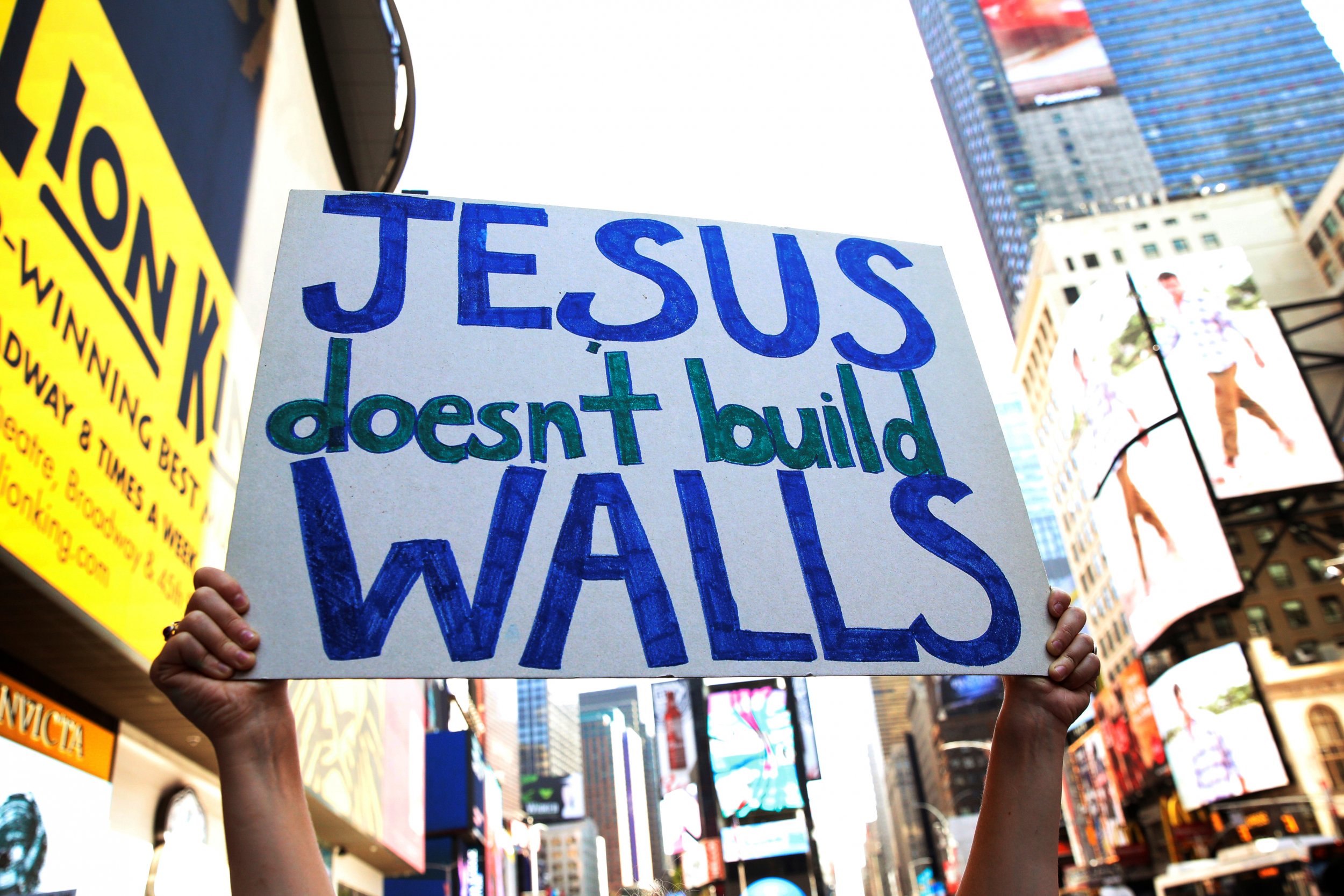
At a closed-door meeting on Tuesday, Donald Trump delivered a message to evangelicals that if he wins the White House in November, he will fiercely defend religious freedom.
Addressing evangelical leaders from across the country in New York City, the presumptive Republican presidential nominee did not specify whether he would back some form of the controversial religious freedom laws that have been passed in some states and introduced by House conservatives. This is according to Dr. Ben Carson, Trump's former presidential rival turned campaign supporter, who attended the event, after encouraging the mogul to convene the gathering.
"He just acknowledged the fact that in a Trump administration, people who are afraid they're going to lose their religious rights...can stop worrying so much," Carson tells Newsweek.
Religious freedom laws, like the one passed in Indiana in 2015, would, in theory, allow individuals or companies that object to gay people or gay marriage on religious grounds to refuse to serve them. But Indiana's Republican leaders were forced to backtrack after the law kicked up a national backlash, not just from gay rights groups but from top Indiana business executives. The battle over religious freedom has only intensified, however, ever since the Supreme Court legalized gay marriage nationally a year ago this week.
Freedom of religion was the top issue that attendees highlighted at the "get-to-know-you conference," as Carson dubs it. Another attendee, Andrea Lafferty, president of the Traditional Values Coalition, confirmed that it was a key issue.
"As you may have noticed, there seems to be a lack of regard for people's strongly held convictions that are religiously based," says Carson, a celebrated neurosurgeon and devout Seventh Day Adventist, who won a devoted following among social conservatives during his erstwhile presidential run. "People are very concerned that that's just the beginning of the erosion."
Trump did not, however, talk much about LGBT issues on Tuesday, both Carson and Lafferty said, despite it being a topic the Republican candidate has mentioned repeatedly in the days since the June 12 massacre at a gay nightclub in Orlando, Florida. "We want to live in a country where gay and lesbian Americans and all Americans are safe from radical Islam," Trump told a crowd in Greensboro, N.C., on June 14. Lafferty, who is backing Trump, didn't seem too worried about those kinds of comments. The Orlando attack "was mass murder, it was horrible and that's where...a lot of that is coming up."
And Carson said no one else raised concerns about Trump's stance on gay rights at the gathering, except in regard to the armed forces. "Basically he said those are decision that should be made by the generals and the people who know how to put together an effective fighting force," Carson says.
The doctor also plays down any controversy over a leaked video from the event that showed Trump questioning presumptive Democratic nominee Hillary Clinton's faith. "We don't know anything about Hillary in terms of religion," the video shows Trump telling the crowd of nearly 1,000. "I didn't hear the specific comment, I think that it was just observational," insists Carson, who was known over the course of his campaign to make some controversial statements himself. "I think it was an invitation for her to make it clear what her faith base is."
One of the offshoots of Trump's Tuesday meeting was the creation of an evangelical executive advisory board. According to the campaign, membership on the board does not signal an endorsement of Trump. Rather, "the formation of the board represents Donald J. Trump's endorsement of those diverse issues important to Evangelicals and other Christians, and his desire to have access to the wise counsel of such leaders as needed." Among its members are former Congresswoman and 2012 presidential candidate Michele Bachmann, James Dobson, the founder of influential conservative advocacy group Focus on the Family, and Jerry Falwell Jr., one of the first social conservatives to endorse Trump.
Carson says he expects to remain active in Trump's campaign in an informal role. He says he's currently talking with the Trump campaign about doing more outreach to "communities that have felt neglected by the Republican party in the past," particularly black Americans. The Trump campaign will soon be reaching out to African-Americans, the neurosurgeon says, "with some very specific plans, proposals and meetings."
Carson, himself, "will be working on that" with the campaign, "working on health care and education initiatives and all the things really that are threatening the future of our country."
Uncommon Knowledge
Newsweek is committed to challenging conventional wisdom and finding connections in the search for common ground.
Newsweek is committed to challenging conventional wisdom and finding connections in the search for common ground.
About the writer
Emily spearheads Newsweek's day-to-day coverage of politics from Washington, D.C. She has been covering U.S. politics, Congress and foreign affairs ... Read more
To read how Newsweek uses AI as a newsroom tool, Click here.








